Network leaders advocate for leadership development in education during the 2025 UN General Assembly
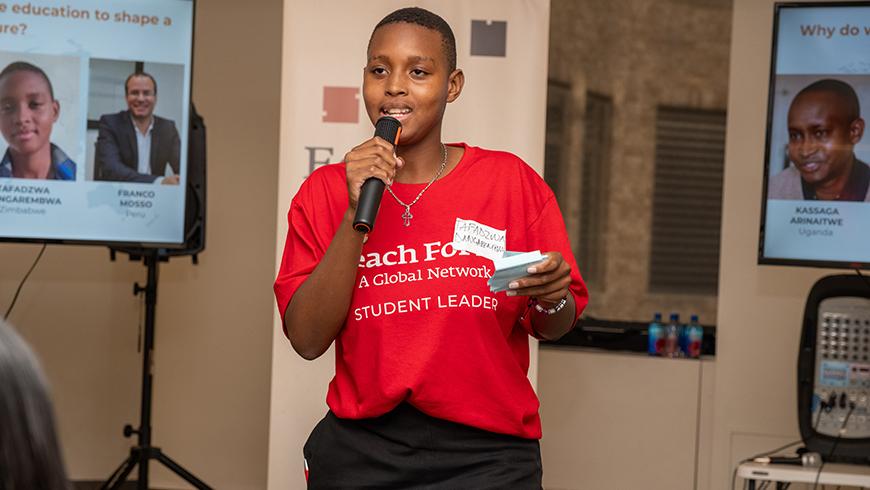
Members of the Teach For All network, including students, teachers, alumni, CEOs, and staff, recently convened in New York during the 80th United Nations General Assembly (UNGA) to champion the transformation of education systems. Despite education not being a primary focus of the formal UNGA agenda, our network’s active participation underscored a growing global consensus—more than ever, we need to collaborate to equip students to shape a better future for themselves and all of us.
Highlights from the inaugural Education House
On Tuesday, September 23, Teach For All co-led the inaugural Education House alongside Salzburg Global and HundrED, with the Diplomatic Courier as media partner. Hosted at Teach For All’s Manhattan office, the event drew nearly 700 registered attendees. Discussions spanned critical topics such as foundational literacy and numeracy, collective leadership, the role of AI in education, developing youth agency, and the future of international aid. The event fostered conversations, collaborations, and showcases, demonstrating how cross-border learning can inspire local action and bring diverse stakeholders together to put education at the center of sustainable development.
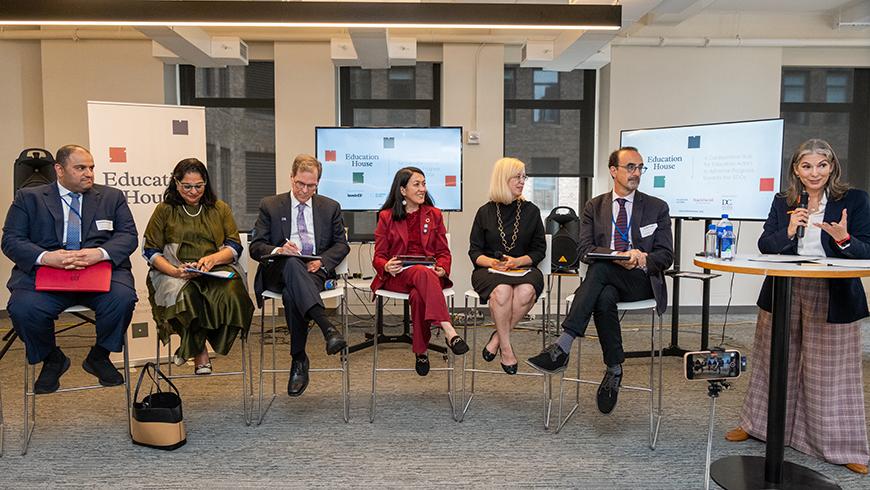
A key open session hosted by the Education House team, including Teach For All, focused on the shared learning question from the April Global Institute for Shaping a Better Future's Global Forum: "What will it take to equip students to shape a better future?" Insights from this discussion, which included leaders in education and innovation and 30 session attendees, will inform the next Better Future Forum in Singapore in May 2026.
We also hosted an exploration of Teaching as Collective Leadership (TACL), a framework for transformational teaching and learning that empowers students and communities. TACL has emerged from Teach For All’s engagement with over 4,500 leaders in diverse classrooms and systems, asking one fundamental question: What distinguishes transformational classrooms around the world? This session demonstrated how Teach For All shifted focus from asking "How are teachers supporting dramatic academic improvement?" to asking "What is happening in classrooms where students are growing holistically as leaders shaping a better future?" The session posited that while it is challenging to synthesize global patterns for locally rooted contexts, there are lenses—students as leaders, teachers as learners, community as power, and this work as systemic—that lead to a set of contextualized strategies and outcomes that grow students as leaders of a better future.
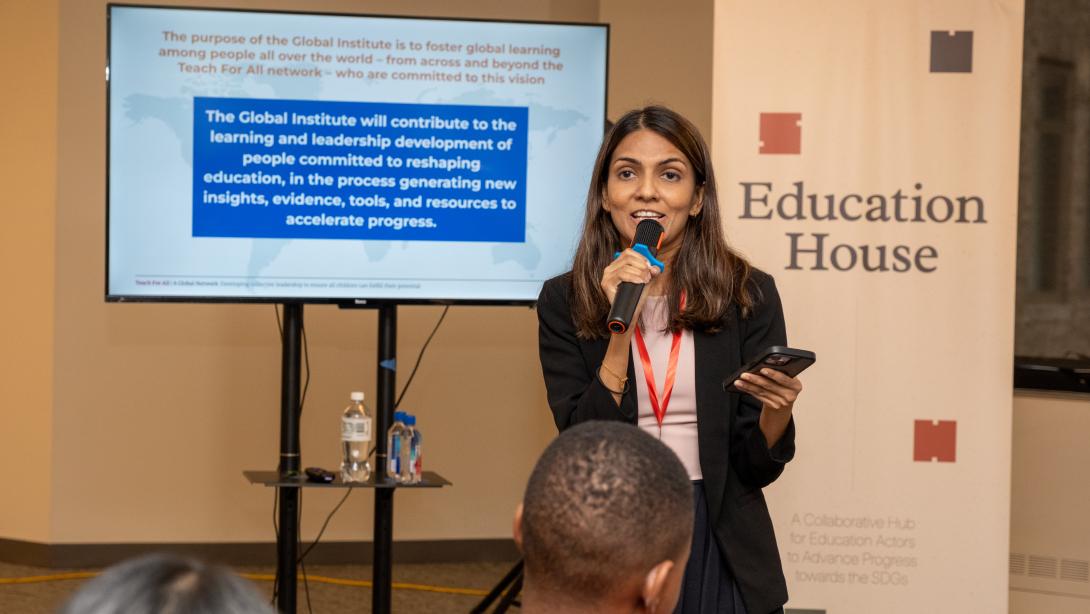
Youth voices at the forefront
Throughout the week, the Teach For All student delegation—Aurora Delgado Camones (Enseña Perú), Tafadzwa Dangarembwa (Teach For Zimbabwe), and Jerzy Kwiatkowski (Teach for Poland)—seized every opportunity to urge world leaders to center youth voices in efforts to shape a better future. They were active participants at Education House, Tafadzwa supporting the TACL session and Aurora speaking at the launch of the Learning Planet Youth Design Challenge 2025/26, emphasizing the essential role of building youth agency in education.
On Wednesday, September 24, Jerzy addressed a gathering of the Global Partnership for Education and Population Council community for "Our Education, Our Future," a dynamic dialogue showcasing education's transformative power for equitable and sustainable development.
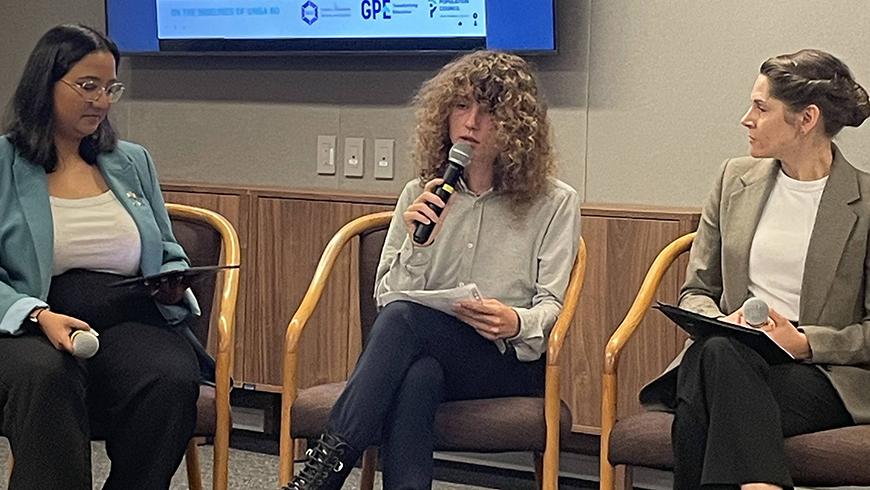
Aurora and Tafadzwa addressed delegates on Thursday, September 25, at the "30 Years of the World Programme of Action for Youth" (WPAY) event at UNHQ. This event, the first youth-focused session during a UN General Assembly, brought together young leaders and organizations globally to assess progress for young people since 1995. Aurora and Tafadzwa highlighted youth readiness to lead and challenged leaders to lead with youth. Their contribution can be viewed here.
Finally, on Friday, September 26, Aurora participated in a closed-door interactive dialogue, "Charting Our Future: Youth Voices, Shared Directions," with other youth leaders, the United Nations Deputy Secretary-General Amina Mohammed, and Assistant Secretary-General for Youth Affairs Felipe Paullier. The session explored charting a path toward a more inclusive, sustainable, and responsive future, fostering conversations and connections to drive solutions.
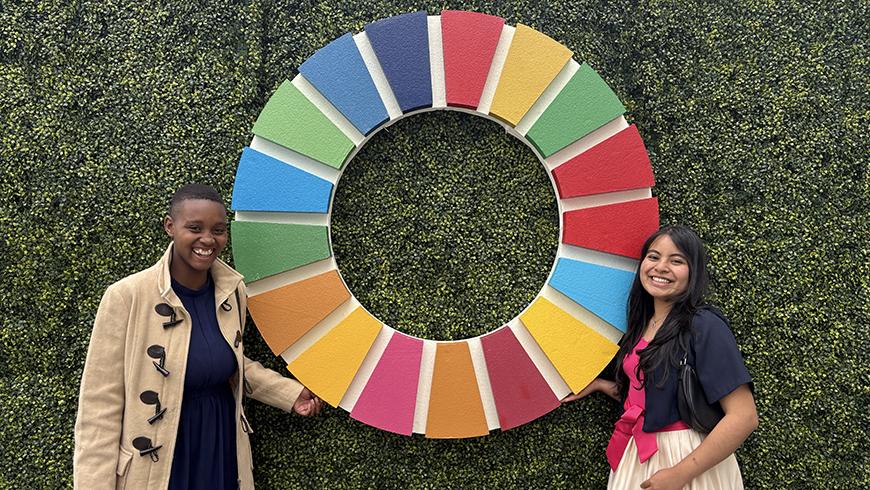
Advocating for investment in collective leadership development
The Education Futures Forum, hosted by the Diplomatic Courier and The World in 2050 at the UN Media Zone on Sunday, September 21, convened global leaders, policymakers, educators, and innovators. The forum explored how to transform education systems, bridge the skills gap, and create inclusive learning economies aligned with UN Sustainable Development Goal 4 (Quality Education). Teach For All’s CEO and Co-Founder, Wendy Kopp, spoke about the urgent need to re-prioritize education in light of existential threats, increasing polarization, and technological transformation. She advocated for reshaping education's purpose and practices to equip all young people with the agency, awareness, connectedness, critical thinking skills, and mastery to shape a better future, calling for investment in collective leadership development.
On the sidelines of UNGA, the People First Community also gathered to discuss the imperative of investing in collective leadership development for sustainable development, particularly amidst declining aid funding. Community members explored advancing this effort through increased investments, deeper practice, heightened awareness, and a learning agenda focused on measuring, evaluating, and researching leadership development.
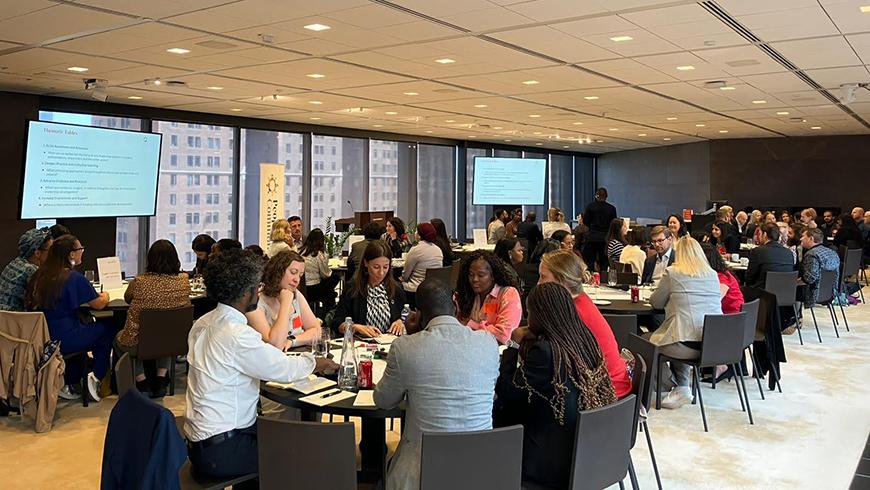
Our engagements at UNGA highlighted a unified push towards advocating for the critical importance of education in conversations about global challenges. By hosting and co-leading the inaugural Education House, we actively created a dedicated space to bring education to the forefront of UNGA discussions, while the vocal participation of our student delegates and network staff in various other spaces kept education central to discussions throughout the week. These efforts underscored the growing recognition of the need for collective leadership to prepare students globally for a more equitable and sustainable future.



